The AMEI Golden Apple Awards honour outstanding educators and educational programmes from across the SingHealth Duke-NUS Academic Medical Centre who have, and continue to, transform teaching and raise the standards of healthcare education.
Meet this year’s winners!
Generativity Award for Educators
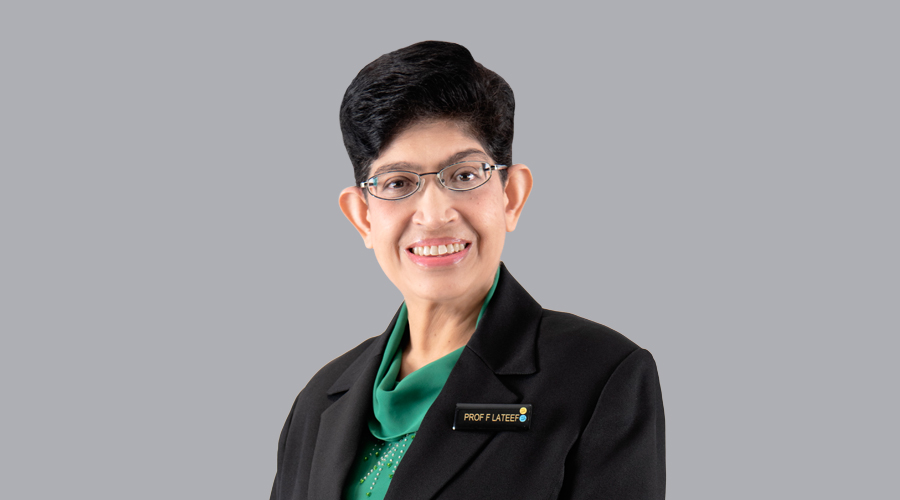
Professor Fatimah Lateef
Senior Consultant, Director of Quality and Patient Safety, Emergency Medicine, SGH;
Co-Director, SIMS
With multiple roles in education in SingHealth, Prof Fatimah Lateef has been instrumental in shaping educational curriculums across residencies, SingHealth Duke-NUS Academic Clinical Programmes (ACPs) and departments.
As Co-Director of the SingHealth Duke-NUS Institute of Medical Simulation (SIMS), Prof Fatimah has made major contributions to simulation-based education in the AMC, even bringing SIMS to recognition on the international stage with its accreditation by the Society for Simulation in Healthcare, USA. She leads technology-driven education and teaching, supervising projects in Serious Gaming and Virtual Reality (VR), and collaborating with partners to write protocols and algorithms. Prof Fatimah is also overseeing the set-up of the new SIMS i3 Hub that will be launched in January 2022, which will drive tech-driven education and Extended Reality (XR) training within the AMC.
Not only is Prof Fatimah an exemplary role model to colleagues and students alike, she is also a strong advocate of lifelong learning and empowerment, extensively mentoring and exploring new educational methodologies and tools to guide learners.
Beyond our shores, Prof Fatimah was instrumental in setting up the Maxhealthcare Institute of Simulation in India. She also supports with the World Health Organisation’s (WHO) Collaborating Centre for Emergency and Trauma in New Delhi, India with her wealth of experience in international humanitarian work, global disaster response and development of emergency systems.
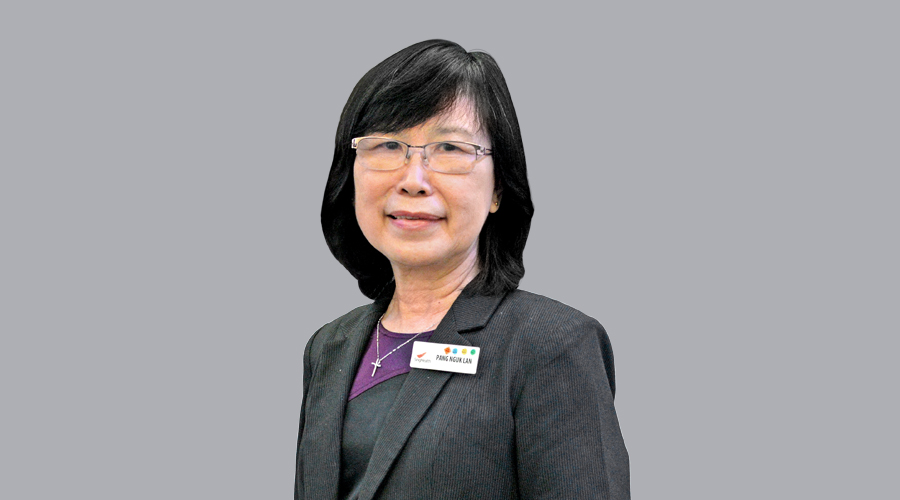
Ms Pang Nguk Lan
Deputy Group Director, SingHealth Duke-NUS Institute of Patient Safety & Quality;
Chief Risk Officer, KKH
With more than 20 years of experience in the Intensive Care Unit (ICU), Ms Pang Nguk Lan is a nursing leader who walks the talk. Resourceful and passionate, Ms Pang frequently comes up with innovative solutions to improve nursing care and is actively involved in countless Quality Improvement (QI) projects. As Chief Risk Officer for KKH, she has facilitated over 170 Enterprise Risk Management Projects in the past decade, one of which being the Speaking Up for Safety (SUFS) – Target Zero Harm initiative, which has since been incorporated as a core programme for all new hires in the hospital.
In 2015, when KKH made Target Zero Harm by 2022 a strategic priority, Ms Pang initiated a comprehensive programme consisting workshops and town halls to empower staff to speak up on safety concerns without fear.
Ms Pang is a dedicated educator, faculty member and convenor of a range of patient safety, quality assurance and clinical programmes, both locally and regionally. Driven by a desire to constantly challenge the status quo and champion lasting change to improve patient care, she has also facilitated more than 150 programmes and projects on patient safety and risk management across the AMC.
Outstanding Educator Award
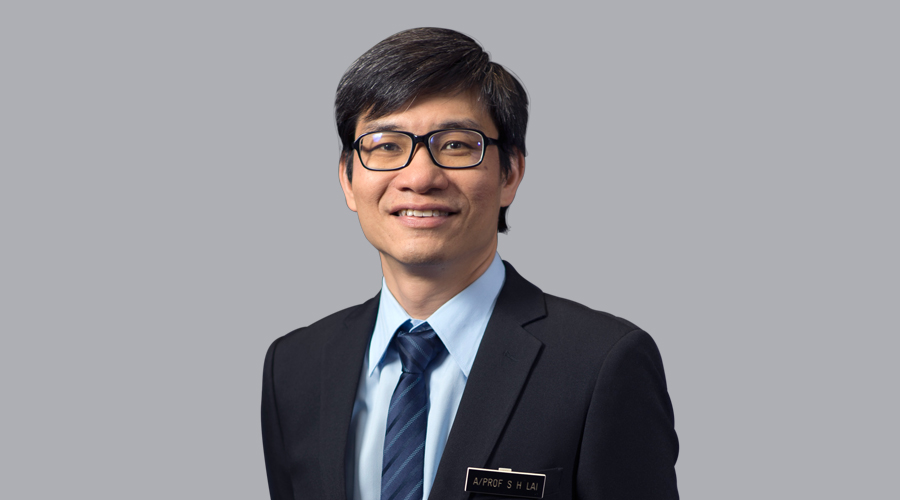
Associate Professor Lai Siang Hui
Vice-Chair, Education, SingHealth Duke-NUS Pathology ACP;
Senior Consultant, Anatomical Pathology, SGH;
Associate Professor & Assistant Dean, Pre-Clinical Integration, Duke-NUS Medical School
Since 2008, Dr Lai Siang Hui has been instrumental in the development and establishment of the SingHealth Pathology Residency Programme, serving as Programme Director from 2010 to 2016.
Today, Dr Lai continues to be heavily involved in medical education and is known to go above and beyond for his students, taking time out of his busy schedule to do regular check-ins with them and actively monitoring their performance. His commitment to learning and dedication toward teaching has earned him admiration from his colleagues and students at all levels.
Both inside and outside the classroom, Dr Lai is a champion for his students, providing ready support to those who have difficulties adapting to the academic rigour of medical school, and frameworks to guide them along. He is committed to the training and education of future generations of doctors and continues to realise his vision to establish a no-blame, no-shame environment for learning.
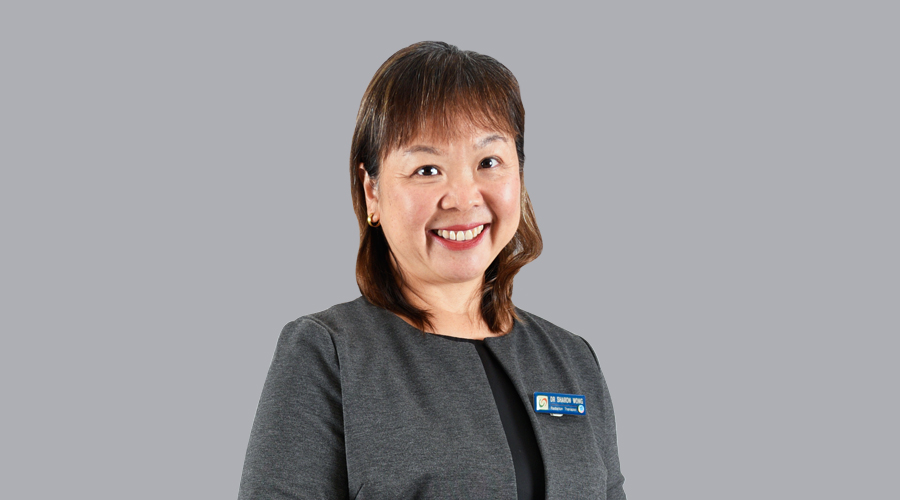
Associate Professor Sharon Wong
Deputy Director, Clinical Programmes, College of Allied Health;
Programme Director, Medical Dosimetry Residency Programme, Division of Radiation Oncology, NCCS
Having been involved in education, research and clinical treatment related to cancer for over 15 years, Assoc Prof Sharon Wong spearheaded the College of Allied Health (CAH) Residency 101 framework, which enables Allied Health Professionals (AHPs) to develop advanced skills and professional competence. She also developed and implemented the Structure Entry Level Training programme (SELT), a broad-based-skills training programme for AHPs with generic scientific qualifications to acquire adequate knowledge and skills to practice as professionals in clinical environments.
Committed to catering to different needs of learners, Assoc Prof Wong constantly innovates her teaching methods and explores alternative ways to fulfil her students’ training needs remotely, which has proven necessary during the COVID-19 pandemic. This led to a collaboration with the DigiPen Institute of Technology Singapore to develop a tool that provides an immersive Radiation Therapy VR and Augmented Reality (AR) environment that can be accessed any time, from anywhere – the first of its kind in Radiation Therapy Education. In preparation for NCCS receiving state-of-the-art proton therapy technology, Assoc Prof Wong played a critical role in developing the curriculum and training programme to equip Radiation Therapists with the necessary skills to deliver the therapy.
Assoc Prof Wong is a nominated Educator mentor under the CAH Education Mentoring Programme, and Academic Adviser to undergraduate students at the Singapore Institute of Technology (SIT). She also serves in various roles and committees in MOH to develop training and educational frameworks for health care professionals.
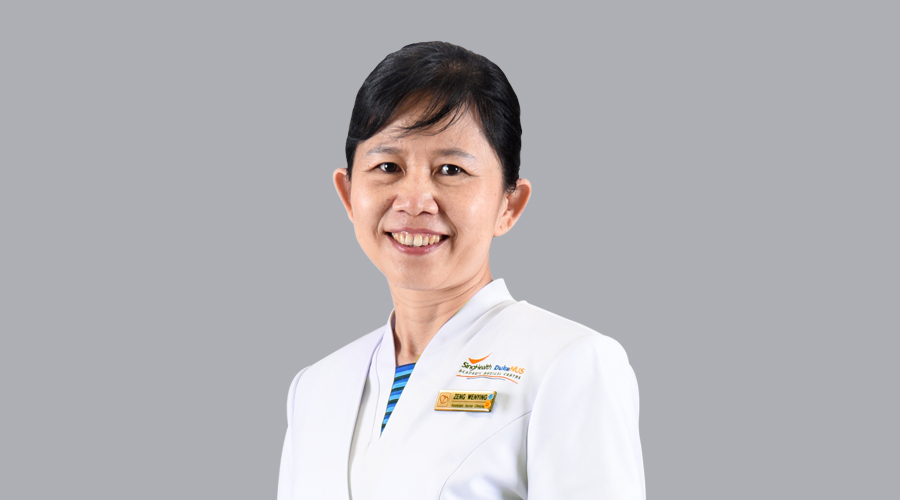
Ms Zeng Wenying
Assistant Nurse Clinician, Nursing Development Unit, NHCS
Since joining the NHCS Nursing Development Unit in 2013, Ms Zeng Wenying has been actively involved in the clinical teaching of students, nursing professionals and ancillary staff. With a strong passion in evidence-based education, education research and innovation, Ms Zeng seeks out ways to refine existing training programmes and develop new initiatives to optimise clinical learning outcomes.
One such initiative she spearheaded is the iCARE (Integration of Critical Thinking, Assessment and Reflection to Empower Learning) instructional tool, which allows nursing students to monitor their learning progress and promote self-regulated learning. Since September 2020, this tool has been implemented in NHCS’ clinical teaching programmes. In collaboration with the SingHealth Duke-NUS Cardiovascular Sciences ACP, system integration experts and nursing informatics teams, the tool was scaled up to an integrated digitalised format, called the iCARE learning portal. It was launched in December 2020.
Ms Zeng is a firm believer in reflective practice and lifelong learning, investing her time in understanding her students’ needs, providing scaffolding coaching and qualitative formative feedback, and carefully designing instructional strategies to facilitate clinical teaching and learning.
Outstanding Young Educator Award
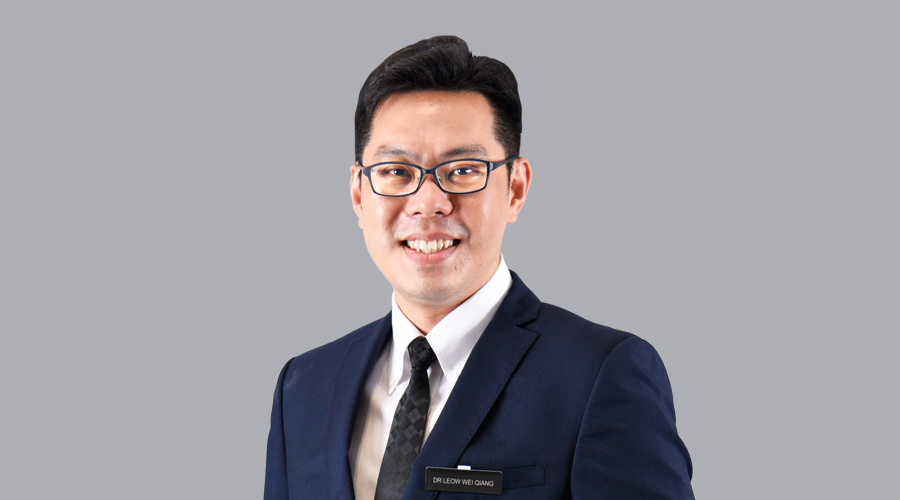
Clinical Assistant Professor Leow Wei Qiang
Programme Director, SingHealth Pathology Residency Programme;
Consultant, Anatomical Pathology, SGH
As Programme Director of the SingHealth Pathology Residency Programme, Cl Asst Prof Leow Wei Qiang is responsible for the postgraduate medical education and training of all SingHealth Pathology residents. Heavily involved in educational efforts across levels and institutions, Cl Asst Prof Leow adopts different approaches for different cohorts to cater to their learning needs.
Active in academics, Cl Asst Prof Leow has co-authored over 30 peer-reviewed articles and is at the forefront in his area of expertise. With his wealth of knowledge, he has initiated programmes such as a near-peer teaching programme that motivates newly-promoted Associate Consultants (ACs) and Senior Residents (SRs) to teach, preparing them to be future educators and ensuring postgraduate medical education standards remain high.
Cl Asst Prof Leow obtained a Learning Technology & Adoption Grant from SkillsFuture Singapore in 2019 to collaborate with a game studio to gamify organ dissection, with the aim to better engage learners through play. He also led the digitalisation of nearly 2,000 education glass slides into an online teaching drive, allowing easier access by residents and faculty members for self-studying and teaching purposes.
Programme Excellence Award
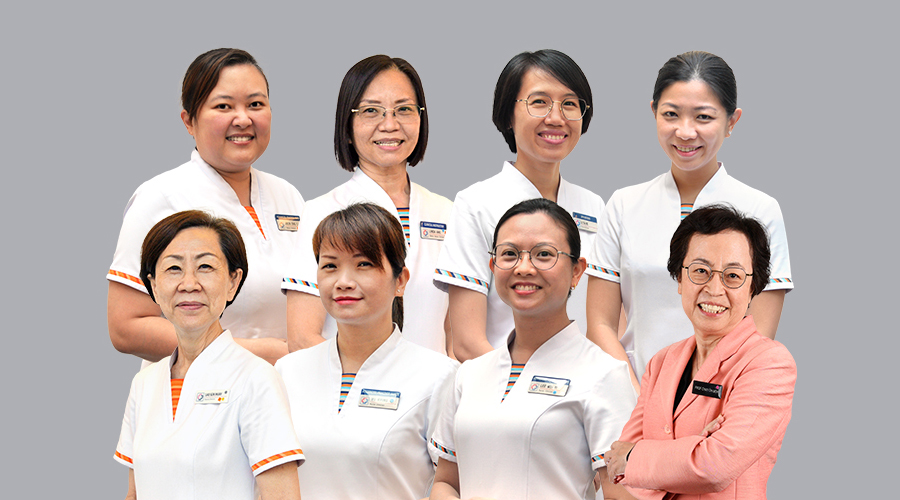
Front row, from L – R: Ms Lau Gek Muay, KKH; Ms Wu Yi Ping, KKH; Ms Lee Mei Yi, KKH; Prof Chay Oh Moh, KKH
Back row, from L – R: Ms Julia Eng, KKH; Ms Linda Ang, KKH; Ms Li Yajie, KKH; Ms Catherine Poey, KKH
(Not pictured) Ms Delphine Tan, KKH; Ms Devasahayam Sharmila, KKH; Ms Hay Mahn Phoo, KKH; Dr Huang Fang, KKH; Ms Julie Tay, KKH; Ms Malkit Kaur, KKH; Ms Rajeshwari Muthusamy, KKH; Adj Assoc Prof Raymond Goy, KKH; Ms Rena Leong, KKH; Prof Sandy Cook, Duke-NUS Medical School; Dr Simon Robert Ling, KKH; Ms Wang Fan, KKH & Ms Xu Suduan, KKH
Clinical Immersion Programme
KKH
The Clinical Immersion Programme (CIP) was developed to assimilate advanced diploma graduate nurses into their roles and facilitate their performance on advanced skills on patients. Under this programme, nurses are trained to exercise clinical judgment skills and make more effective clinical decisions, especially in the early detection of changes in patients’ conditions, leading to more efficient treatment and better patient outcomes.
With these advanced skill sets, nurses can better interpret and synthesise information gathered from history-taking and health assessments to formulate individualised care plans for patients under their care. Through practice, they will be empowered to better articular the situation, background, assessment and recommendations (SBAR) about patients’ conditions with care teams. The Programme also hopes to cultivate nurses’ interest in pursuing the path of Advanced Practice Nurses as part of their professional development.
Since its implementation in May 2018, the CIP has trained 106 nurses through a variety of teaching modalities, such as face-to-face health assessment practical sessions and clinical bedside teachings. The programme will be extended to all levels of nurses in KKH.
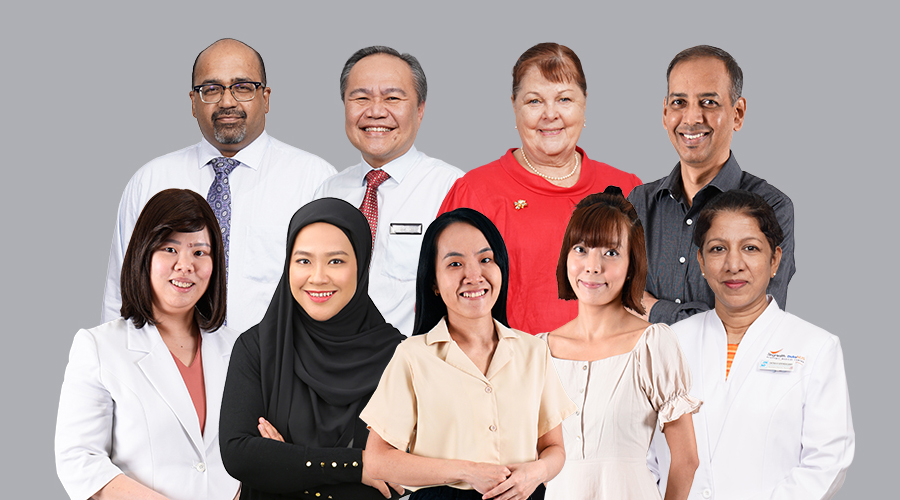
Front row, from L – R: Ms Eileen Lim, SNEC; Ms Haslina Binte Hamzah, SNEC; Ms Heidi Tai, SNEC; Ms Claire Ong, SNEC; Ms Chitra Govindasamy, SNEC
Back row, from L – R: Dr Thiyagarajan Jayabaskar, SNEC; Prof Ian Yeo, SNEC; Assoc Prof Vicki Drury, SNEC; Mr Lakshmanasamudram Mohanram, SNEC
(Not pictured) Mr Alwin Tan, SNEC; Dr Bryan Sim, SNEC; Ms Cynthia Lin, SNEC; Ms Eunice Loh, SNEC; Dr Ferrer Janice Silva, SNEC; Dr Howard Yu Cajucom-Uy, SNEC; Dr Ilyana Ibrahim, SNEC; Ms Joanna Chia, SNEC; Mr Joseph Ho, SNEC; Ms Karen Zhang, SNEC; Dr Lim Sing Hui, SNEC; Ms Lisa Ong, SNEC; Dr Loo Yunhua, SNEC; Ms N Reena, SNEC; Dr Nathalie Chiam, SNEC; Dr Ng Wei Yan, SNEC; Ms Priscilla Lim, SNEC; Assoc Prof Rajamani Lakshminarayanan, SERI; Dr Shaun Sebastian Sim, SNEC; Dr Sonal Kaizad Farzavandi, SNEC & Dr Tan Tien-En, SNEC
Duke-NUS SNEC Basic Certificate for Ophthalmic Assistant and Technician
SingHealth Duke-NUS Ophthalmology & Visual Sciences ACP & SNEC
With Singapore’s ageing population comes an expected increase in patients with eye diseases. There is therefore a need to build a pool of non-ophthalmologist professionals to deliver ophthalmic services.
Since its launch in 2015, the accredited Duke-NUS SNEC Basic Certificate for Ophthalmic Assistant and Technician has trained 67 Ophthalmic Assistants (OAs) and Ophthalmic Technicians (OTs) to assume higher roles and responsibilities, such as carrying out visuals assessments and establishing preliminary diagnoses, in the ophthalmic setting. This has allowed ophthalmic nurses and ophthalmologists to dedicate more time to providing better holistic care for their patients.
Designed to comprehensively amalgamate theoretical knowledge and clinical skills to develop competent AHPs in Ophthalmology, the programme was the first in the Asia Pacific region to receive accreditation by the Joint Commission on Allied Health Personnel in Ophthalmology (JCAHPO).
For more information, view the programme’s introductory video here.
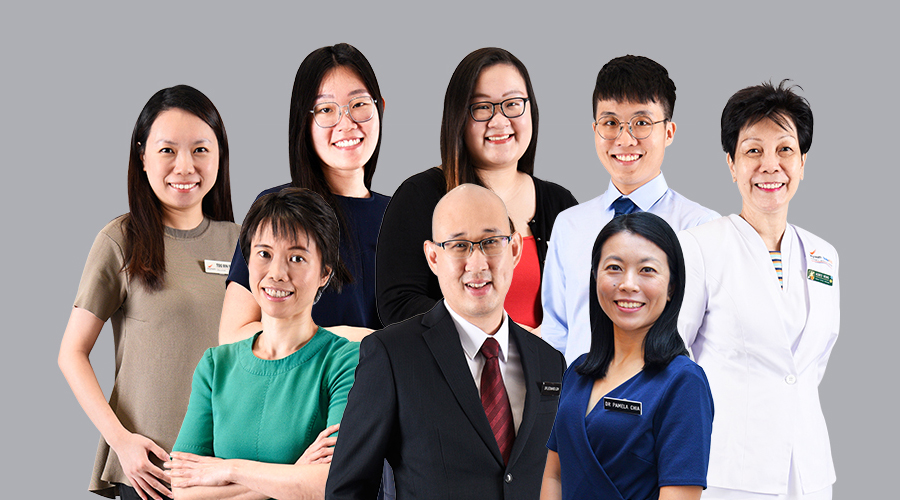
Front row, from L – R: Dr Chong Shin Yuet, SGH; Dr Leonard Loh, SGH; Dr Pamela Chia, KKH
Back row, from L – R: Ms Too Xin Yi, SIMS; Ms Goh Ying Hong, SIMS; Ms Sng Bi Xia, SIMS; Mr Lew Kai Xiong, SIMS; Ms Agnes Wong, SGH
(Not pictured) Dr Agnes Ng, KKH; Dr Bong Choon Looi, KKH; Dr Chow Sau Yee, SGH; Dr Deborah Khoo, SingHealth Anaesthesiology Residency; Ms Fu Jing, SGH; Dr He Yingke, SGH; Dr Jonathan Chen, SGH; Mr Kenneth Yeo, SGH; Dr Lee Sumin, KKH; Mr Lex Sitt, SGH; Dr Marianne Chee, SingHealth Anaesthesiology Residency; Dr Mok Un Sam, SGH; Dr Quak Su Min, SGH; Dr Samantha Wong, SingHealth Anaesthesiology Residency; Dr Stefanie Chua, SingHealth Anaesthesiology Residency; Mr Terence Wong, SGH; Dr Wong Loong Tat, SGH & Dr Zaw Ma, SGH
Malignant Hyperthermia Preparedness through Interprofessional Education (MH-PIE)
SingHealth Duke-NUS Anaesthesiology & Perioperative Sciences ACP & SIMS
Malignant Hyperthermia (MH) is a life-threatening emergency in susceptible individuals after exposure to triggering anaesthetic agents during surgery. The interprofessional team caring for these patients during surgery has to be familiar with the protocol and resources to swiftly manage an MH crisis, which has a mortality rate of 80% if early detection and treatment is not initiated.
The MH-PIE programme aims to enhance preparedness for MH management on the SGH campus through interdisciplinary and multi-institution collaboration, by providing a safe and realistic environment for learners to build their knowledge and hone their skills. Learning is further enhanced through a blended simulation-based medical education model.
After the roll-out of the programme in August 2019, participants indicated a considerable improvement in their confidence and knowledge levels in managing MH crises. There are now future plans to collaborate with other anaesthesia departments nationwide to set up MH preparedness programmes tailored to their clinical environments.
Look out for the 2022 Call for Nominations in January next year! Click here for more information.
